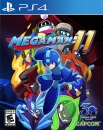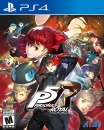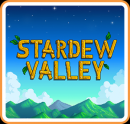| Chrkeller said: Modern games generally have 3 problems Games in the 90s were better. Focused, sharp, original and actually put gameplay first. |
Interesting, I like 3 points you listed in modern games
1) Games are now bigger, I feel it's an actual good thing. In the 80s and the 90s I often feel some games were intentionally "cheap" in terms of difficulty, having poor quality of life choices because they needed kids to fail and lose time with activities that would otherwise make the games to end even faster. And if a game is good, I don't want it to end soon. I beat Resident 3 remake, a great game, but was appalled by how short it is, it took me like 6 hours to beat, pretty much a weekend. Of all games that had the same length I would need to play like... 70 games a year. I don't have money, nor interest in playing that much, I prefer to spend some time finding a game I like and then stick with it until I'm satisfied. In this sense, I really understand the appeal of GaS and online-focused games like LOL, Genshin Impact, Final Fantasy XIV, etc. You don't have a developer saying to you and/or forcing you to stop your enjoyment, you can enjoy the game for as long the servers are up and that's wonderful.
2) I don't feel everything is open world nowadays, this is an overstatement but yes I agree open world is more common now among AAA developers and is this really what are making the games bland and generic? I like when games make me feel free in a sense I can experiment and explore and have a different experience every time I play, sometimes I like it more than focused and clear level design. Of course this is also a grey area, for instance, Mario Odyssey isn't open world, but the level design isn't tight, in a way I can explore the maps in whatever order I feel in the moody, the dozens of hidden stars make my experience playing it an experience of discovery and exploring similar to open-world. My sweet spot is Metroidvanias like Hollow Knight or Ori, those games are technically open world 2D, in HK after I got the Mantis Claw I feel the paths I could choose were drastically increased, I could go almost everywhere granted I couldn't explore 100% of every area until unlocking some abilities.
3) I like narratives... for me they are immersive. That's what I've always liked in JRPGs, they were full of stories. One thing I liked on gaming is the fact I could feel I'm inserted in the role playing, imagining I'm part of the party. I often keep thinking about the story and characters long after I close the game, that's something that only happens if games have a story. Games that don't have a story are okay too, but I hardly keep as emotionally invested in them as games with a story, the exception being probably simulation games like Animal Crossing, although one can argue simulation is kinda making a story already. The odds of dropping the game with the best gameplayer EVER RELEASED are for me higher than a game I'm emotionally invested in, let's say Xenoblade. Never liked the combat system, but loved the story, so I keep playing until the story was complete.
Now thinking I bit, it's very easy to understand many of my favorite games released in the last couple of years fall into those categories too:
Zelda? Horizon? Open World
Sqplatoon, Animal Crossing, Civ 6, Stardew Valley, Paladins? Big games that don't force you to quit until you get burned out
TLOU 2, Detroit, Persona 5, FF7 remake, Fire Emblem Three Houses? Story heavy
The exception would be Soulslike games which aren't exactly old either
And Metroidvanias (Hollow Knight, Ori, Metroid Dread), which aren't like an open world, but I like them for about the same reasons I like open world
I loved Hades and Deadcells, so maybe rogue-like is my next Metroidvania, those would be INDEED an exception (although I've liked Hades story), we shall see :p
Last edited by IcaroRibeiro - on 10 July 2022































































